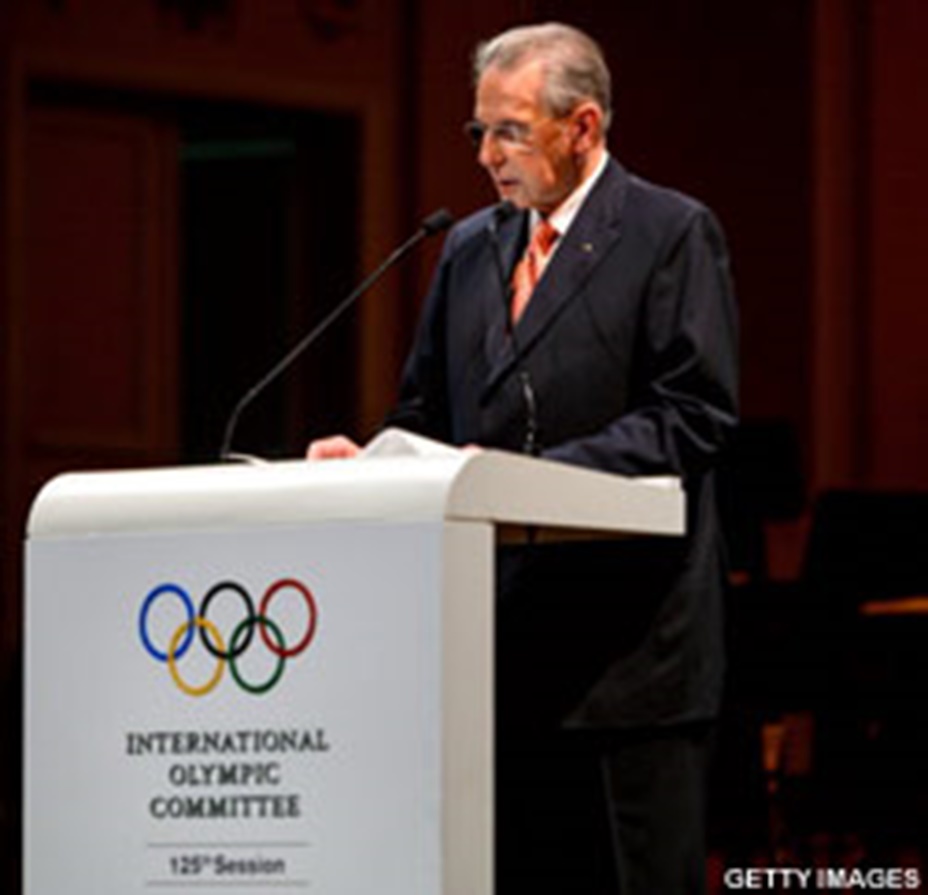Twelve years after becoming IOC President, Jacques Rogge stepped to the podium Sunday to deliver his final activity report to the organization. It outlined all that had changed since he took over the organization in '01. Back then, the IOC was digging its way out of the Salt Lake City scandal, facing criticism from sponsors and struggling to accumulate cash reserves in case an int'l crisis forced it to postpone a Games. But under the 71-year-old Belgian's direction, all that has changed. The organization has avoided another ethics scandal, increased sponsorship revenue by more than 50% and boosted its cash reserves from $105M to $901M. "He's done well," said Spanish IOC member Juan Antonio Samaranch Jr. "Besides the crucial fact he managed to stage extraordinary Games, there's also the things he did like create the reserve fund. He served us well." The IOC's financial position improved considerably under Rogge. When he started in '01, the IOC's TOP sponsorship program generated $663M during a four-year period. It will collect $1B over the next four-year cycle. TV revenue made similar gains, rising from $2.2B when he started to $4B as he leaves. "Globally speaking, the television-rights market is clearly a very solid one and we are obviously not suffering from the drop in TV revenues predicted by many," Rogge said. In addition to achieving financial stability, Rogge negotiated a new revenue-sharing agreement with the U.S. Olympic Committee. The previous agreement gave the USOC 12.5% of U.S. TV rights fees and 16% of TOP revenue. Though NBC pays more than any other rightsholder worldwide, other national Olympic committees and int'l federations criticized the structure. Rogge's administration tried for years to structure a new deal and finally got one done last year. Under terms of the new agreement, the USOC's total haul is capped at $410M per quadrennium plus a share of revenue from new growth areas. "The new agreement ... is a win-win situation for both parties," Rogge said.
IMPROVED ADMINISTRATIVE SERVICES: In addition to financial growth, the IOC improved the administrative services it offered. It developed a system for overseeing the Olympics after they are awarded to a city and created a "knowledge transfer" program to assist host cities with organizing the Games. Rogge also tackled the declining youth interest in the Games, an issue that both broadcasters and sponsors have raised with the IOC. He developed a mini-Olympics called the Youth Olympic Games in an effort to raise awareness of the Olympic movement and encourage young participation in sports. More than 4,500 athletes competed in the first two Youth Olympic Games in '10 and '12, and the Olympics saw some uptick globally in young viewership during the London Games last year. "The appeal of (the London Games), especially in the younger age groups, greatly increased over previous editions," Rogge said. "This is a sign that we have worked in the right direction."
TENURE HAS BROUGHT CRITICISM: For all the IOC's accomplishments the last 12 years, Rogge's tenure has not been without criticism. Several IOC members question the value and cost of the Youth Olympic Games. The IOC spends millions to send its members to the event and cities spend millions to host it, but it has struggled to get int'l media coverage and generate attention outside the host country. There also has been criticism of the way the IOC's sports program has evolved. Rogge introduced a hard cap of 25 core sports for the Olympic program that some IOC members took issue with, and Canada IOC member Dick Pound Sunday questioned the organization's decision to vote wrestling out of the Olympics only to vote it back in several months later. "Jacques was saying we have to keep the program a little dynamic and this was clearly a dead end," Pound said after the vote. "Here we are with the same old program. No change. The exercise was moot." Rogge acknowledged the IOC still faces challenges. Even though its financial situation has improved, the escalating cost of hosting an Olympics remains a concern. Beijing spent $40B in '08, London spent $14B in '12 and Sochi is spending $50B for '14. The choice of Tokyo to host the 2020 Games has momentarily halted that trend as the city plans to spend less than $5B. "We must remain realistic," Rogge said. "The IOC must ensure that it continues and intensifies its policy on controlling the cost, size and complexity of the Games."
|
THE IOC UNDER JACQUES ROGGE
|
|
TOP REVENUE
|
| TOP V ('01-04) |
$663M |
| TOP VI ('05-08) |
$886M |
| TOP VII ('09-12) |
$957M |
| TOP VIII ('13-16) |
$1B |
|
TV REVENUE
|
| '01-04 |
$2.2B |
| '05-08 |
$2.6B |
| '09-12 |
$3.9B |
| '13-16 |
$4B |
|
SUPPORT OF OLYMPIC ORGANIZING COMMITTEES
|
| '98 Nagano/'00 Sydney |
$211M |
| '02 Salt Lake City/'04 Athens |
$346M |
| '06 Turin/'08 Beijing |
$421M |
| '10 Vancouver/'12 London |
$728M |
Tripp Mickle is on the ground in Buenos Aires reporting and tweeting from the IOC meetings. Look for continued posts from him on our On The Ground blog. For more on the IOC presidental vote, which takes place Tuesday, please see Mickle's preview from the Aug. 5 issue of SportsBusiness Journal.




